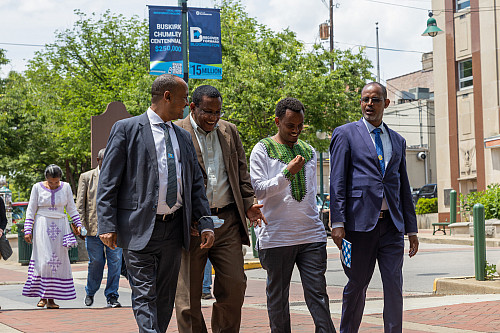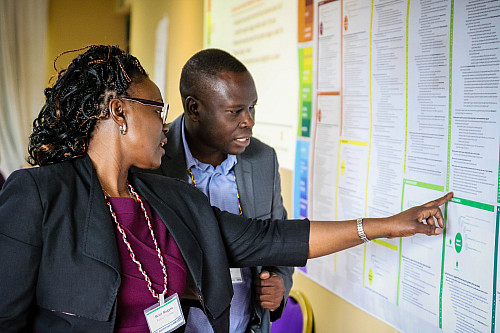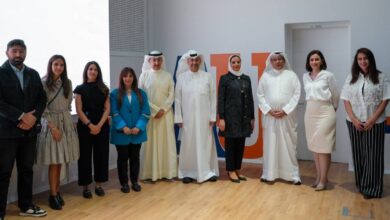Collaborations in Africa foster leadership, research, entrepreneurship: IU News

While the opening of the Indiana University Ghana Gateway in Africa will usher in a new era of collaboration between the continent and IU, the university already has a long history of engagement in Africa.
IU Global — the Office of the Vice President for International Affairs — has been active in many African countries over the past four decades. A collaboration with Khanya College in South Africa from 1992 to 1995 was one of the earliest partnerships in the continent. Since then, partnerships have been established with several African institutions of higher learning.
“An IU gateway office in Africa will play an important role in nurturing and maintaining connections with our current partners and expanding collaborations across Africa,” said Teshome Alemneh, IU associate vice president for international research and development. “It will be a venue for connecting university faculty, researchers and administrators, NGOs, government agencies, and many other stakeholders.”
A particular focus has been collaborations focused on institutional development, which include activities such as improving academic programs and curricula, encouraging faculty development, and conducting joint research. In recent years, for example, the IU Office of International Development has implemented collaborations to foster the next generation of African entrepreneurs, strengthen research capacity in Africa and support young leaders from the continent.
Developing civic leadership skills in young leaders
IU has been a supporter of the Mandela Washington Fellowship for Young African Leaders, the flagship program of the U.S. government’s Young African Leaders Initiative.
Through this initiative, IU has hosted a total of 150 young leaders from more than 30 African nations, enhancing their capacity in civic engagement and leadership and connecting them to Indiana. While at IU, fellows made presentations, discussed their perspectives and passions during courses and networking events, and shared their life experiences during social activities, such as meals with IU faculty and staff families.
“The presence of the Mandela Washington Fellows on campus made a lasting impact on faculty, staff and students, increasing IU’s visibility in more than 20 sub-Saharan African countries,” Alemneh said. “The program furthers IU’s global engagement strategy and increased interest in Africa. It has promoted people-to-people relationships and enhanced mutual understanding.”
IU’s engagement in the Mandela Washington Fellows program took place from 2016 to 2022. The program’s lasting legacy at the university is evident in recent collaborations. Students in the IU School of Public Health-Bloomington, for instance, worked with a Kenyan health clinic through the Hijabi Mentorship Program — an organization focused on empowering and educating women and girls and founded by Nima N’zani Kassim, a Mandela Fellow who visited IU in 2019.
Business entrepreneurship and leadership
In collaboration with Ivy Tech Community College and The Mill, IU led a two-year project in Addis Ababa, Ethiopia. Funded by the U.S. Embassy, the Partnership in Business Entrepreneurship and Leadership Transformation, or PiBELT, increases entrepreneurial capacity in Ethiopia.
“This effort was an opportunity to leverage expertise to enable two universities in Ethiopia — Debre Markos and Bahir Dar — to develop business and entrepreneurship incubation centers, and to instill these skills in young people in Africa,” Alemneh said. “The young people in the community and students at participating Ethiopian universities enhanced their skills on how to develop their business ideas into startups, reducing unemployment, creating jobs and improving economic activities.”
Under the project, IU and its partners developed pre-acceleration and accelerator training modules in topics such as customer development; customer work; “insights/point-of-view/ideation” prototyping; revenue; marketing and sales; team building; instant business plan and pitch deck creation; product development; business development; marketing and sales; and investor pitching.
After completing the training and a pitch competition, 22 business ideas were awarded seed money toward starting their business and prototypes. Funded projects included wheelchair production, animal feed, plastic recycling, seed sowing machinery, mead production, waste disposal and filtration, an e-learning platform, and an ice cream shop.
In addition, the Office of International Development welcomed the managers of these entrepreneurship centers — as well as other administrators from Bahir Dar and Debre Markos — to Bloomington to learn from experts at The Mill, the Bloomington Economic Development Corp., the IU Innovation and Commercialization Office and the Ivy Tech Gayle & Bill Cook Center for Entrepreneurship.
The PiBELT project, which concluded in 2022, has recently inspired a spin-off project. Led by the business incubation centers at Debre Markos and Bahir Dar and supported by the U.S. Embassy in Ethiopia, the spin-off supports women’s development as entrepreneurs in the community, Alemneh said.
Strengthening research capacity
Lastly, through its Office of International Development, IU is a core partner on a project titled Long-Term Assistance and Services for Research: Partners for University-Led Solutions Engine. Known as LASER PULSE, the project focuses on strengthening the research capacity of higher education institutions across the globe, including sub-Saharan Africa.
Funded by $70 million from USAID, LASER PULSE is a consortium led by Purdue University that also includes Makerere University in Uganda, University of Notre Dame and Catholic Relief Services.
“The major focus of LASER PULSE is working with institutions to help them design and implement research projects in collaboration with practitioners so the results of their work can create real impact,” Alemneh said. “It’s about bringing partners — like NGOs, government agencies or community organizations — together in the earliest phases of the research design process to ensure that the problem identification and the final research results will be translated into practice.”
Under this project, IU led communications activities in support of research translation partnerships across the globe. IU also led international research development workshops in Uganda and Ethiopia.
Alemneh said that the wide-ranging projects supported through the IU Office of International Development have the potential to transform higher education institutions and improve people’s lives.
“Whether it’s new skills gained by a young entrepreneur in Ethiopia or new knowledge gained by a Mandela Washington Fellow, those experiences are life changing for them individually, and to their communities,” he said. “And in the case of the experience sharing and capacity enhancement programs in translational research, that’s re-envisioning the whole role of university researchers to make a difference on the ground.
“Ultimately, IU has the expertise and experience to lead and make a difference in these countries, and the opening of the Ghana Gateway will strengthen our endeavors. That’s what drives us.”





